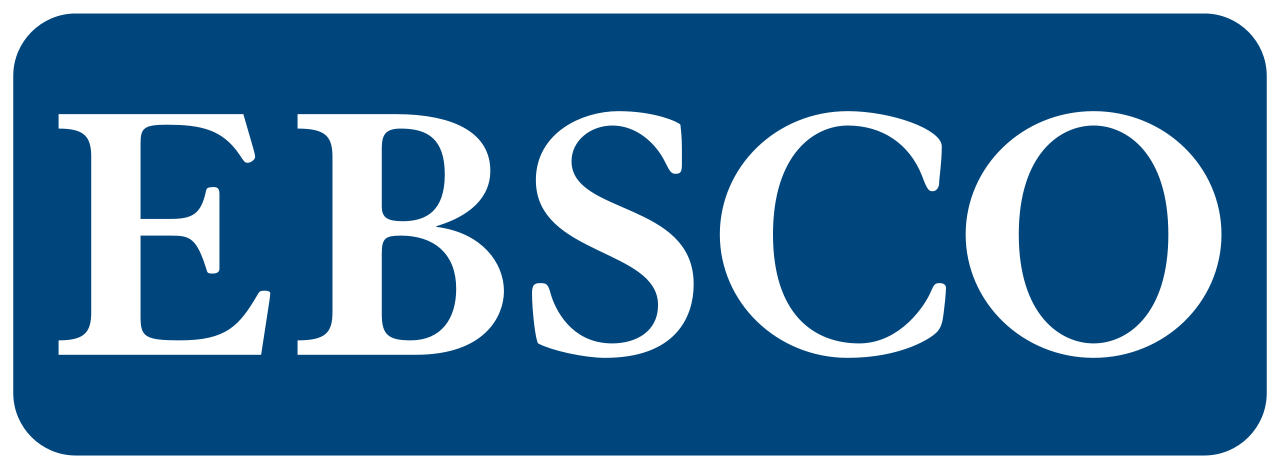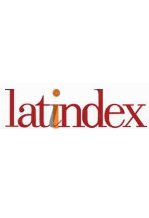The (Un)seen in the contributions to political funding: Lessons from the 2014 Brazilian presidential campaign finance, corruption scandals and new directions in the electoral rules of the game
Abstract
This paper combines Public Choice with Austrian Economics perspectives to provide an interpretation of the logic and the consequences of the Brazilian 2014 presidential campaign finance, often related to corruption scandals uncovered by the “Car-Wash Operation” investigation. Section 1 discusses how Public Choice Theory intersections with Austrian Economics provide a richer understanding of patterns of political behavior in the real world. Section 2 analyzes the rules of the Brazilian political game until 2014. Section 3 shows the top corporate contributors donated to all political candidates, regardless of their parties. We found that they already kept close connections with government infrastructure projects and received subsidized credit from the government. Section 4 wraps the overall argument and concludes that some posterior moves to constrain private sector contributions to political candidates are a kind of smokescreen that reduces transparency, while a bigger role of the government in electoral funds might foster corruption and crony relations.
Downloads
References
Boettke, P. J., & Lopez, E. J. (2002). Austrian economics and public choice. The Review of Austrian Economics, 15 (2), 111–119. Retrieved from https://www.academia.edu/download/24942358/10.1.1.199.2076.pdf
BOETTKE, P., & LEESON, P. (2004). An ‘Austrian’s perspective on public choice. In: The encyclopedia of public choice. [s.l.]: Springer, 2004. p. 351–356.
Brazil (1995). 9096. Political Parties Law.
Brazil (1997). 9504/1997. Elections Law.
Buchanan, J. M. (1980). Rent-seeking and profit-seeking. In: Toward a theory of the rent-seeking society. College Station, Texas: Texas A & M University Press. v. 3p. 15.
Buchanan, J., M., & Tullock, G. (1962). The calculus of consent. Ann Arbor: University of Michigan Press.
Central Bank of Brazil. (2020). Special Series. Complete balance of payments as of 1947, public sector net debt and borrowing requirements, SFN loans, direct foreign investments, broad money supply. Retrieved from https://www.bcb.gov.br/en/statistics/specialseries.
DiLorenzo, T. J. (1988). Competition and political entrepreneurship: Austrian insights into public-choice theory. The Review of Austrian Economics, 2(1), 59–71.
Folha de São Paulo. (2017). Folha Explica: Operação Lava Jato. Retrieved from http://arte.folha.uol.com.br/poder/operacao-lava-jato/
Folha de São Paulo. (2019). Entenda o uso do WhatsApp nas eleições e o que aconteceu desde que a Folha revelou o caso. Folha de São Paulo, São Paulo. Retrieved from https://www1.folha.uol.com.br/poder/2019/10/entenda-o-uso-do-whatsapp-nas-eleicoes-e-o-que-aconteceu-desde-que-a-folha-revelou-o-caso.shtml
Folha de São Paulo. (2020). Partidos devem favorecer caciques e repetir modelo do laranjal no rateio do fundão. Folha de São Paulo, São Paulo. Retrieved from https://www1.folha.uol.com.br/poder/2020/01/partidos-devem-favorecer-caciques-e-repetir-modelo-do-laranjal-no-rateio-do-fundao.shtml
Gwartney, J., Lawson, R., Hall, J., & Murphy, R. (2019). Economic Freedom of the World: Economic Freedom of the World. Vancouver: Fraser Institute. Retrieved from: https://www.fraserinstitute.org/sites/default/files/economic-freedom-of-the-world-2019.pdf
Haber, S. (2002). Crony Capitalism and Economic Growth in Latin America: Theory and Evidence. Stanford: Hoover Press.
Hayek, F. A. Von. (1937). Economics and knowledge. Economica, 4(13), 33–54.
Hayek, F. A. Von. (1974). The Pretense of Knowledge. Retrieved from https://www.nobelprize.org/prizes/economic-sciences/1974/hayek/lecture/
Hayek, F. A. Von. (2001). The road to serfdom. London and New York: Routledge.
Holcombe, R. G. (2002). Political entrepreneurship and the democratic allocation of economic resources. The Review of Austrian Economics, 15(2-3),143–159.
Holcombe, R. G. (2013). Crony capitalism: By-product of big government. The Independent Review, 17(4), 541–559.
Holcombe, R. G. (2015, winter). Political capitalism. Cato Journal, 35(1),41. Retrieved from https://www.cato.org/sites/cato.org/files/serials/files/cato-journal/2015/2/cj-v35n1-2.pdf.
IBGE. (2020). Site of the Brazilian Institute of Geography and Statistics (Instituto Brasileiro de Geografia e Estatística - IBGE). Retrieved from https://www.ibge.gov.br.
Ikeda, S. (1997). Dynamics of the mixed economy: Toward a theory of interventionism. London and New York: Routledge.
Ikeda, S. (2003). How compatible are public choice and Austrian political economy? The Review of Austrian Economics, 16(1), 63–75. Retrieved from https://www.researchgate.net/profile/Sanford_Ikeda/publication/5156524_How_Compatible_Are_Public_Choice_and_Austrian_Political_Economy/links/5e0a3ea74585159aa4a6e8ee/How-Compatible-Are-Public-Choice-and-Austrian-Political-Economy.pdf
Kirchinger, D. (2005). Government Without Taxes: Operating For-profit and Paying Dividends to Its Owners: the Constitution for Capitalism. Detroit: Gold Leaf Press.
Kirzner, I. M. (2015). Competition and entrepreneurship. Chicago: University of Chicago Press.
Lisboa, M. B., & Latif, Z. A. (2013). Democracy and Growth in Brazil (Revised Version). Retrieved from https://www.insper.edu.br/wp-content/uploads/2013/07/Democracy_and_Growth_in_Brazil.pdf.
Miller, T., Kim, A. B., & Roberts, J. M. (2019). Economic Index of Economic Freedom: 25th Anniversary Edition. Washington, DC: The Heritage Foundation. Retrieved from https://www.heritage.org/index/pdf/2019/book/index_2019.pdf
Mises, L. Von. (1998). Interventionism: An economic analysis. Indianapolis: Liberty Fund, 1998. Retrieved from http://oll-resources.s3.amazonaws.com/titles/2394/Mises_Interventionism1574_LFeBk.pdf
Mises, L. Von. (1949). Human Action: A Treatise on Economics (4th ed.). San Francisco: Fox and Wilkes.
MPF. (2017). Site of the Federal Prosecution Service (Ministério Público Federal - MPF) about Carwash Operation (Caso Lava Jato). Retrieved from http://www.mpf.mp.br/grandes-casos/lava-jato.
Musacchio, A., & Lazzarini, S. (2014). Reinventando o capitalismo de Estado. O Leviatã nos Negócios: Brasil e outros países. São Paulo: Portfolio Penguin.
National Treasury of Brazil. (2020). Dívida Pública Federal: Relatório Anual 2019: n. 17. Brasília: Secretaria do Tesouro Nacional. Retrieved from http://www.tesouro.fazenda.gov.br/relatorio-anual-da-divida.
Rowley, C. K. & Schneider, F. (2004). The Encyclopedia of Public Choice. New York: Kluwer Academic Publishers.
Schumpeter, J. A. (2003). Capitalism, Socialism and Democracy. London and New York: Routledge.
Singh, M. P. (2005). Quote unquote: A handbook of quotations. New Delhi: Lotus Press.
TSE. (2014). Serviço de Prestação de Contas do Superior Tribunal Eleitoral. Retrieved from http://inter01.tse.jus.br/spceweb.consulta.receitasdespesas2014
Tullock, G., Brady, G. L., & Seldon, A. (2002). Government failure: a primer in public choice. Washington, DC: Cato Institute.
Zywicki, T. (2016). Rent-Seeking, Crony Capitalism, and the Crony Constitution. Supreme Court Economic Review, 23(1), 77–103. Retrieved from https://www.journals.uchicago.edu/doi/pdfplus/10.1086/686473.
Downloads
Published
How to Cite
Issue
Section
License
The copyright of papers published in the Revista de Economia Mackenzie belongs to the authors, who grant to the Mackenzie Presbyterian University the exclusive rights to publish the content. Total or partial reproduction is prohibited without due authorization of the Editorial Committee, except when it is previously authorized.










